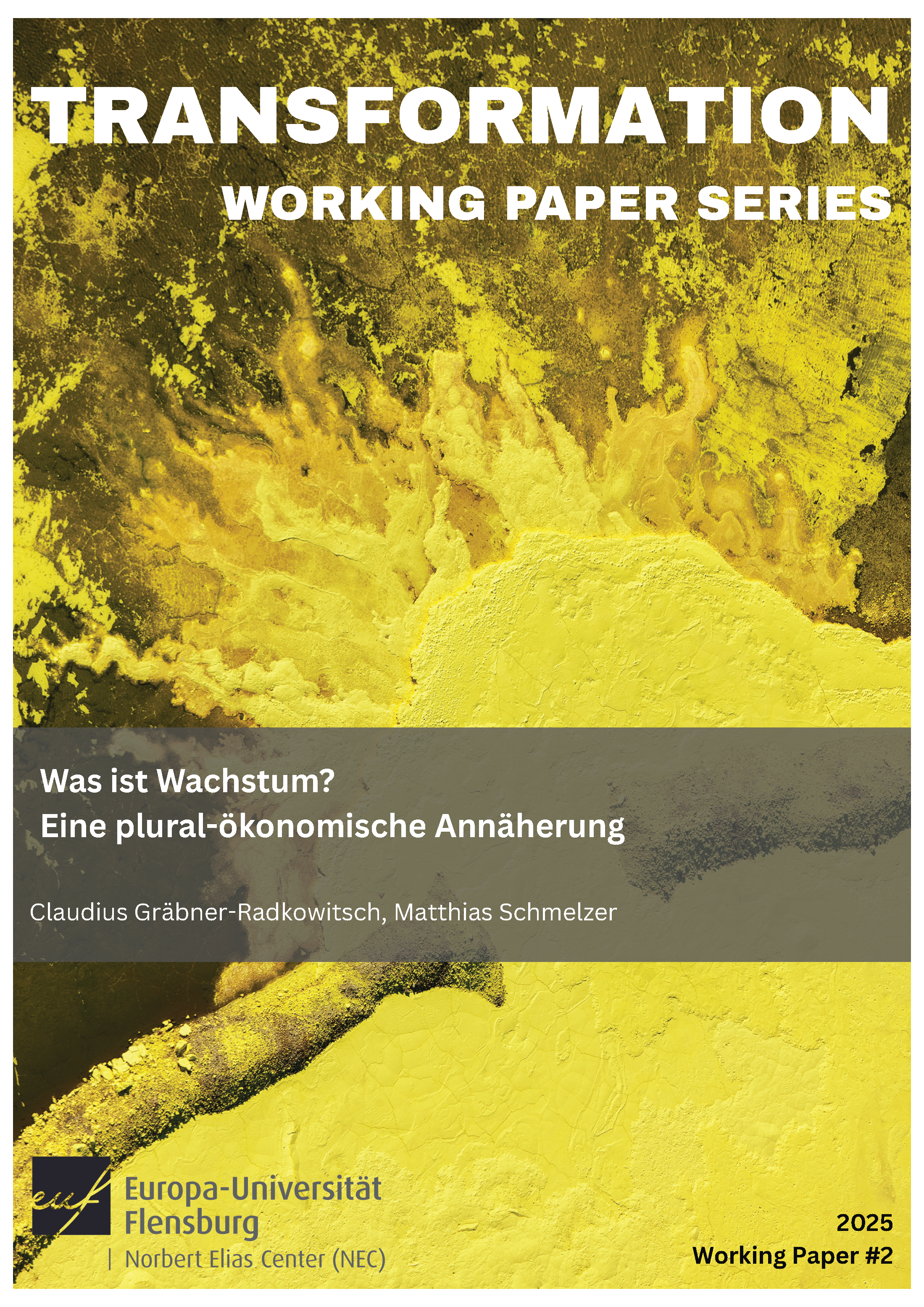Was ist Wachstum? Eine plural-ökonomische Annäherung
DOI:
https://doi.org/10.18716/ojs/transformationworkingpaperseries/2025.2.11731Keywords:
economic growth, GDP, plural economics, sustainability, degrowth, green growth, social-ecological transformationAbstract
What is growth? A plural-economic approach
Economic growth is not only a key idea in economics but also a prominent theme in political and social discourses. Despite its ubiquitous presence, the exact meaning, history, and effects of different ideas of growth often remain unclear. This article takes a pluralistic approach to answer the question "What is growth?" Thereby, it explains how various economic paradigms understand and assess the concept differently.
First, it discusses the rise of the "growth paradigm" since the mid-20th century. Then, it compares four main schools of economic thought—mainstream economics, post-Keynesian economics, ecological economics, and feminist economics—in how they analyze and evaluate the idea of growth. It becomes clear that these paradigms fundamentally differ in their basic understanding of growth and how they explain growth mechanisms.
While mainstream and post-Keynesian economists rely on gross domestic product (GDP) as the main measure and see growth as mostly positive, ecological and feminist economists fundamentally challenge this focus on GDP. These perspectives criticize the neglect of care work, environmental harm, and social reproduction, and they advocate alternative ways to measure prosperity.
A comparative analysis of these four paradigms leads to a discussion of the ongoing debate between "green growth" and "degrowth" approaches amid various social and ecological crises. Thereby, this chapter emphasizes the need for a pluralistic view of growth to enable informed and self-reflective decisions about its role in a sustainable future.
Downloads
Published
Issue
Section
License
Copyright (c) 2025 Transformation Working Paper Series

This work is licensed under a Creative Commons Attribution-ShareAlike 4.0 International License.



